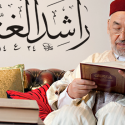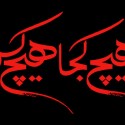The “clash of civilizations” supposedly underway between the West and the Muslim world, which many see as manifested in Iraq, as well as in Saudi Arabia’s growing violence, in fact masks other conflicts – disputes that will probably prove to be far more significant in the long term. One of these struggles is taking place among Muslims themselves over the shape of reform within their own societies.

The Muslim reformist tradition – the search for an authentic path that links Islam’s traditions to the modern world – has deep roots, stretching back to the middle of the 19th century. Back then, Muslim thinkers contrasted the decline of their own societies with Europe’s dynamism, a particularly painful distinction in light of European successes in colonizing large parts of the Muslim world. Then, too, Muslim intellectuals focused on the “decadence” of Muslim societies, their debilitating political and social corruption.
Many early Muslim reformists were clerics or senior bureaucrats, who had seen first hand how diminished their societies had become. More importantly, they were members of a tiny minority that had been educated in the written heritage of Islam. Far beyond Koranic recitation, these men aspired to participate in the centuries-long discussions among Muslim scholars about the proper ordering of Muslim life. This training enabled them to compare the debased state of affairs of their time with the norms and aspirations of earlier generations of clerics and thinkers.
Their judgment was clear: Muslims had sunk far below what their religion required them to be, and lagged far behind the accomplishments of their ancestors. For the reformers, normality meant the progressive development of Muslim societies, and they tied this to the interaction of Islamic teaching with relevant, worldly ideas of the time. So these first reformers sought to engage with the ideas that they saw emerging from Europe: rationality, tolerance and ethically determined behavior.
These early reformers, among them Muhammad Abduh and Jamaleddin al-Afghani, did not ignite the mass mobilization they hoped for, and were not able to redress social ills through better implementation of religious prescriptions. But their influence was powerful and lasting, and extended in directions that they could not have anticipated.
The paradox here is that the open-minded reformism they espoused helped stir conservative trends among Islamic thinkers, who seized on the reformists’ revival of Islamic norms to urge a return to the “purity” of the first Islamic societies. This conservative trend did not follow-up on the reformists’ engagement with the modern ideas of the European Enlightenment, arguing instead that these represented a further estrangement from authentic Islamic values.
Thus, the most lasting effect of the first reformist wave was the establishment of a “salafi” (traditionalist) trend and eventually the emergence of an even more radical fundamentalism. Both conservative traditionalists and radical fundamentalists were drawn to political activism and came to regard the modern state as a means to liberate Muslims from foreign domination and to re-Islamicize society through a revival of Islam’s original norms.
Today, we can see the force of this ideology, but it would be a mistake to assume that the spirit of the original Muslim reformists has vanished. Out of the spotlight, countless Muslim scholars and academics have continued to probe the connections between Islamic thought and modern values. Drawing on critical scholarship in history and theology, they have detailed the ways in which Muslims have changed – and continue to change – their traditions, in different times and places.
Thus, a sharp, focused challenge to the assertions of religious orthodoxy has emerged in the work of such important thinkers as Abdolkarim Soroush (Iran), Abdelmajid Charfi (Tunisia), Fazlur Rahman (Pakistan), and Mahmud Muhammad Taha (Sudan). While their work encounters great resistance from traditionalist and fundamentalist circles (whose views are widely covered in mainstream Muslim and Western media), these contemporary reformers – and the questions they have raised – have had a big impact on a rising generation of Muslim intellectuals around the world.
Of course, listeners must strain to hear the voices of reformists amidst the din of those calling for resistance to the enemy and a return to the pure sources of Islam. However, the seeds of a new wave of “reform” have taken root, and await an early thaw to sprout.
The reformists of the first wave attempted to “reopen the doors of Ijtihad (religious interpretation)” in order to adapt the inherited systems of Islamic thinking to new conditions. Today’s reformists are subjecting these traditional frameworks to scrutiny and attempting to separate the core ethical principles of Islam from the various historical adaptations that conservatives have enshrined as sacred.
Adapting Islam to modern conditions was the purpose of the first generation of reformers. By engaging fully with the main currents of modern thinking, their contemporary successors seek to better understand how universal principles can be expressed through Muslim tradition.
L’article en français
La tradition réformatrice de l’islam
المقال بالعربية
تقاليد حركات الإصلاح في الإسلام
July 2004



 This search is powered By Nawaat experimental generative artificial intelligence. Begin typing your search or question above then press return. Press Esc to cancel.
This search is powered By Nawaat experimental generative artificial intelligence. Begin typing your search or question above then press return. Press Esc to cancel.
iThere are no comments
Add yours